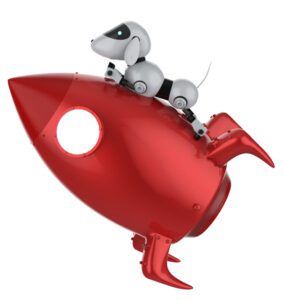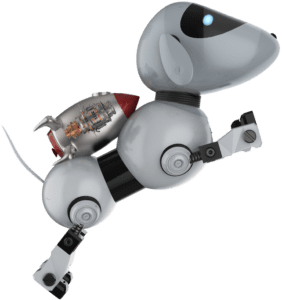Coaching Structure
I offer both a free-flowing approach as well as structured programs. For most of my clients, it’s not an either-or situation. We remain flexible. We incorporate some structure while leaving plenty of room to go wherever the conversation takes us on a given day.
This dynamic has a tendency to evolve over time. Sessions at the beginning of the coaching journey are usually more structured, designed to address whatever desires or issues brought the person to coaching in the first place. Over time, as these initial things are worked through, sessions often become more free-flowing. For many of my clients, coaching comes to serve as a type of home base, a regular place for reflection and planning. We talk about whatever is going on at the time: points of tension, upcoming decisions, rumination, worries, current priorities, goals, action planning, accountability, etc.

In our initial session, we will discuss your particular needs and come up with a rough idea of the style of coaching that is most appropriate for you. Some people prefer to stick with the free-flowing style from the beginning. Others are looking for a more structured life coaching program. For those who prefer the more structured approach, the program is unique to each individual and is designed around a series of modules. I have a list of modules I’ve created over the years that are based on various themes. I pick the ones that seem most relevant to a particular client and put them together into a program. The program provides a rough road map for the weeks ahead, though we still maintain flexibility. As things progress, we might swap modules out and change things based on how our path together unfolds. An example of such a program is listed below.
Even in this more structured approach, there will still be plenty of time in our sessions for talking about what’s pressing at that moment in your life. The key points in most of these modules will be provided in written form before the session and then reinforced with some optional homework after, so we can usually devote the bulk of our time to current events if that’s what we’re feeling on a given day, while at the same time still keeping up with the program themes.
Further, we will always use whatever is covered in the module to address what’s going on in your life. I use the terms “Tension” and “Vision” to describe two basic realms of coaching. Tension encompasses the negative things in your life that we want to change; the places where we work to reduce stress, anxiety, worry, and tension. Vision, on the other hand, refers to the positive changes we want to make; things like planning, goal setting, dreaming, etc. Ultimately, coaching is about helping a person make the changes in their life they are looking for, and most of these changes fall into one of these two categories. All this to say, within each module we will look at the theme in terms of how it relates to tension and vision; how it relates to the current issues and goals you have. How can we use this theme to unwind some of the tension in your life? How can this theme help you reach your goals and make your vision a reality?
Here is a sample program to give you an idea of what this might look like.
Session 1 – Discovery
What are your values? What is important to you? What have been some formative experiences in your life? How do you define a life well-lived? We explore these topics to create a blueprint for wellbeing.
Session 2 – Tension
Where are the points of tension in your life? How do you feel stuck? How would you like things to be different? What burdens are you carrying? Humans are not designed to be happy all the time. Even those of us in the best circumstances experience the full range of emotions, the negative along with the positive. Learn to spot and unwind unnecessary tension.
Session 3 – Resilience
Hardship is unavoidable, but how you deal with it defines the quality and character of your life. Adversity can be an opportunity for growth. Stress is not necessarily the enemy. Learn to embrace uncertainty, hit things head on, and push your comfort zone. A life of vitality awaits!
Session 4 – Vision and Motivation
What do you want your life to look like? What are your longterm goals? Visualize what you want in order to kindle motivation. Construct your narrative to build a life of meaning and purpose. Understand the science of motivation to get where you want to go.
Session 5 – Productivity, Goals, Systems, Habits
What tactics can we use to get us where we want to go? How can we optimize getting things done? Learn to set SMART goals and tap into the power of accountability. Willpower is not reliable, so we design habits, structures, and your environment to create a life that flows.
Session 6 – Cognitive Triangle 1 – Thoughts
Here we introduce the Cognitive Triangle: thoughts, emotions, and actions. Learn how each point influences the others. Reframing your thinking is one of the most powerful tools in your arsenal. Come to understand your mind better. Design mindsets that will shift the way you move through the world.
Session 7 – Cognitive Triangle 2 – Emotions
Get to know your emotional guidance system. It is incredibly powerful and wonderful, though sometimes the modern environment causes it to misfire and create unnecessary suffering. Learn acceptance strategies to better navigate the waves of difficult emotions. Learn to defuse emotionally-charged thought patterns.
Session 8 – Cognitive Triangle 3 – Actions
In the previous sessions, we saw that it can sometimes be difficult to control your thoughts and emotions. Interestingly, the point on the triangle that you have the most conscious control over is your actions. You can do things even when you don’t feel like it. Develop committed action and create a positive snowball effect.
Session 9 – Mindfulness
We are not one nice unified thing psychologically, but are made up of different parts. Get to know the part of you that is separate from the commotion and can observe your thoughts, emotions, and other parts. Learn about meditation and how it can benefit you and help you to get to know yourself better.
Session 10 – Inner Wisdom / Decision-Making
An introduction to Dual Process Theory. You are much more than just your conscious thinking. Beneath the surface is an unconscious supercomputer that is incredibly powerful. Learn about the science of decision-making and develop faith in yourself and your inner wisdom.
